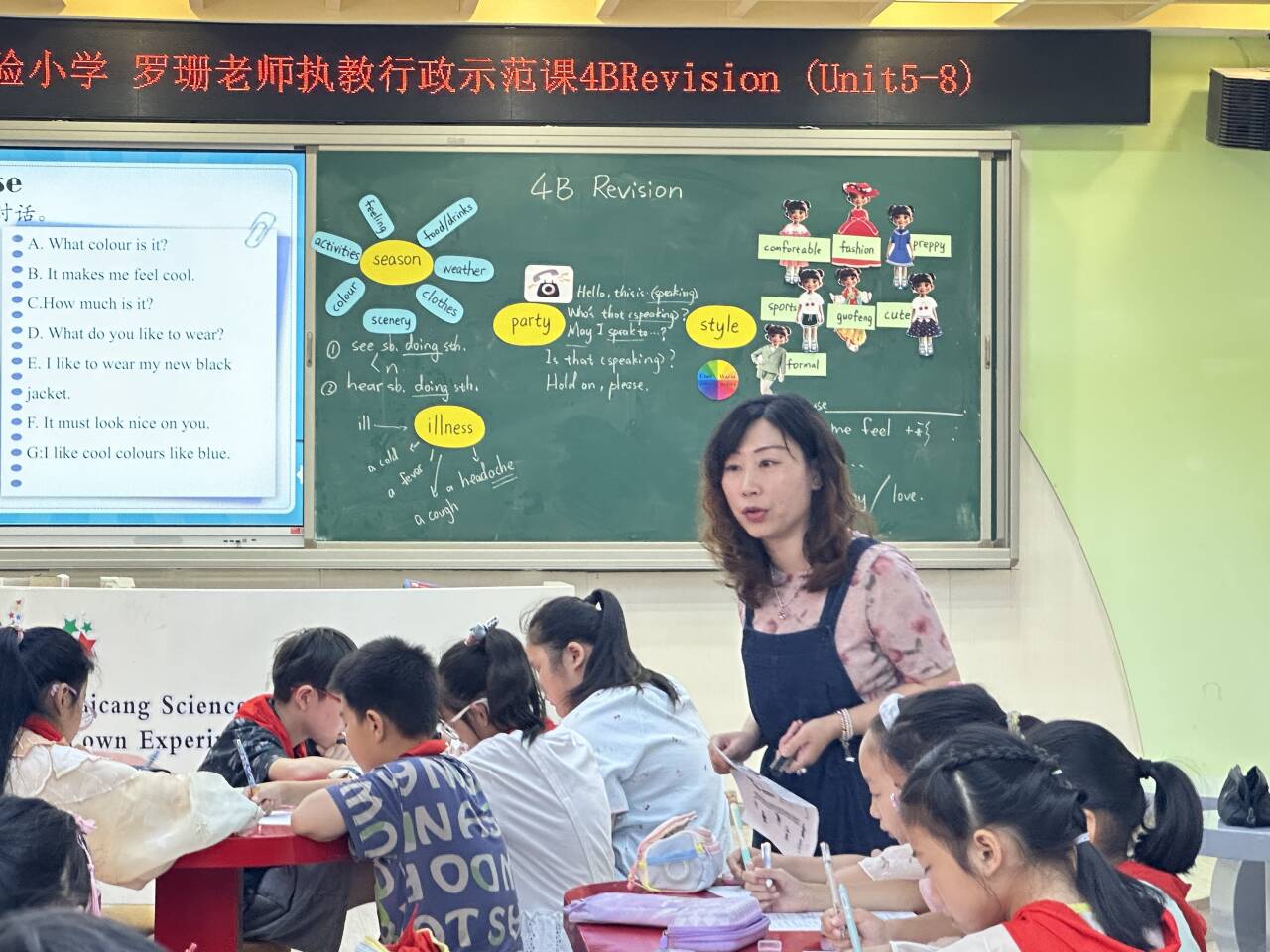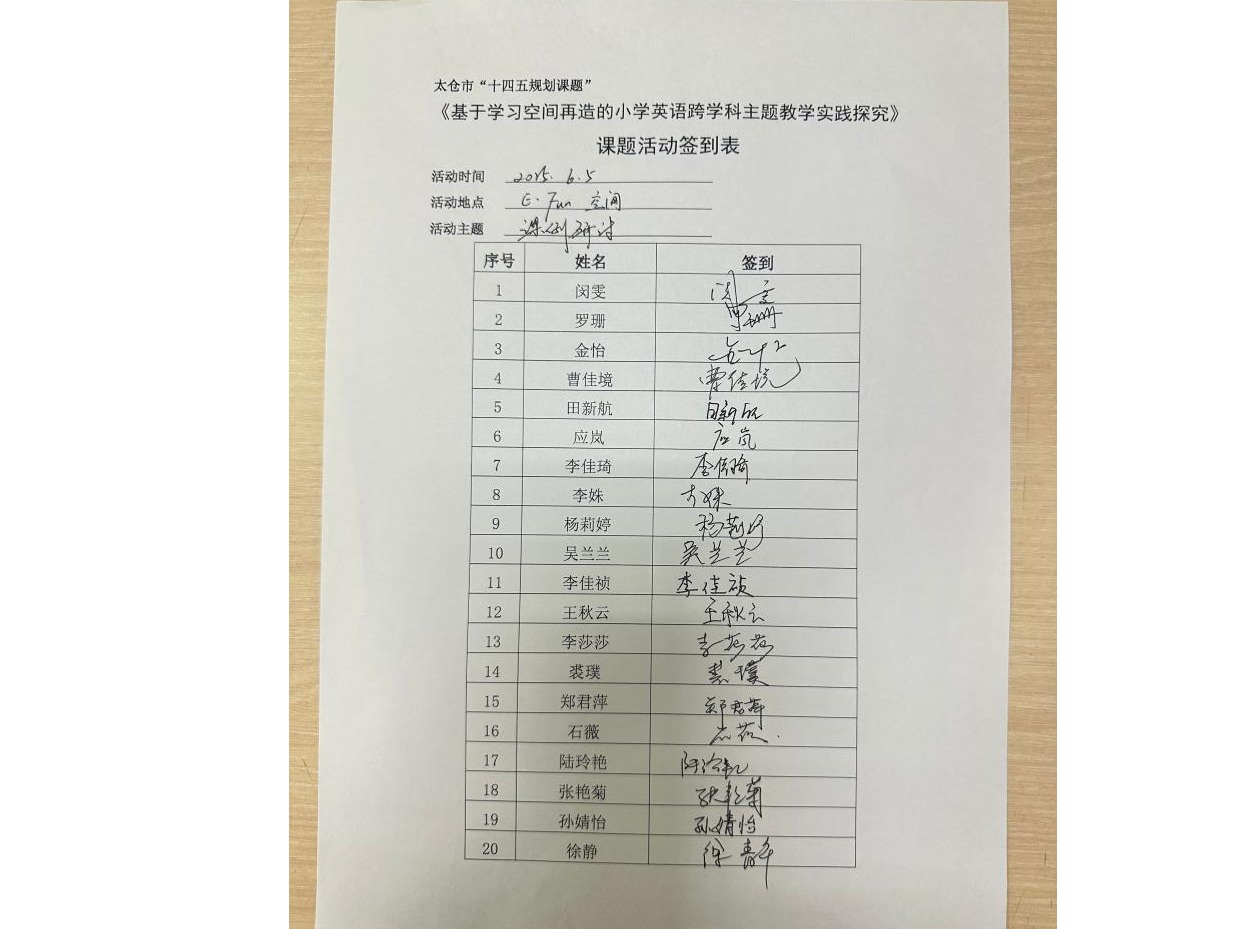过程 一、课例 Step 1. Warm-up 1.Sing the song <Up Spring Mountain>. 2.Think: What’s the song about? Why? Step 2. Presentation 1.Look at the simple Mind-map and guess: T’s favourite season is__________. 2.Read T’s favourite season and try to think: What can we talk about the season? Learn: scenery see sb. doing sth. hear sb. doing sth. 3.Review different activities in different seasons. We … in spring/summer/autumn/winter. 4.Listen and write: Tom’s favourite season is ____________. Activities :______________________________________. 5.Look and say: My favourite season 6.Help Tom invite his friends on the phone. Review “How to make a phone call?” 7.Listen and answer: Can Jack come to Tom’s birthday party? Can Jane come to Tom’s birthday party? 8.Make a call between Tom and Eric/Joe. 9.Summary: illnesses( a cold/fever/cough/...) Think and say: How to ask and how to answer about illnesses. Give some suggestions. 10. Read the clues, match the clothes and fill in the blanks. Tell the difference between “whose” and “who’s”. 11. Think and answer: Do you like the school party? Do you want to be a party star? How? 12. Talk about clothes, write down the right words.Check and spell the words. 13. Tell the difference between the singular and the plural clothes nouns Step 3. Consolidation 1.Talk about our school parties Q: What style of clothes should we wear? Tent Festival Party:comfortable style, sports style Children’s Day Party:formal style, fashion style, guofeng style Reading Festival Party:preppy style, cute style 2.Play a dressing game, change the AI girl’s clothes style Learn a sentence: Different clothes, different style. 3.Watch a video of Nezha and Ao Bing’s telephone call. Q: What colours do they like? Do you think colour matching is important? Why ? 4.Learn a sentence: Different colours, different feelings. 5.Look and learn:Red,yellow,orange are warm colours. Blue is a cool colour. Q: Why do so many restaurants use warm colours? What colour are the desks? Why? Think: What are warm /cool colours? What colour do you like? Why? 6.Do an exercise. 7.Enjoy some Dopamine Dressing. Q: Can we mix warm colours and cool colours ? What colour can match any colour? Learn: Neutral colors White, black and gray can match any colour. 8.Group work: Talk with your partner and make a report in your group. 9.Give an Evaluation to the group. 10.Learn the sentences: Clothes are your second skin, they not only cover you, but also express you. Step 4. Homework 1. Review the main points and words. 2. Finish the exercises.
二、课例研讨 应岚:虽然在教学过程中引入了跨学科知识,但在深度和广度上还有待加强,且缺乏系统性。例如,在讨论服装风格和色彩搭配时,只是简单地介绍了颜色所代表的情感和象征意义,没有进一步引导学生了解不同文化背景下色彩的差异和内涵。在艺术领域,不同国家和地区对颜色的使用和解读有着独特的传统和习俗,如在中国文化中,红色象征着吉祥、繁荣,而在西方文化中,红色有时与危险、激情相关联。如果能够系统地引入这些跨文化知识,让学生了解不同文化背景下色彩的多元含义,将有助于拓宽学生的国际视野,培养他们的跨文化交际能力。 金怡:在教学过程中,教师虽然尝试了跨学科教学,但未能充分整合各类教学资源。例如,在复习季节时,可以利用地理学科中的地图、气候数据等资源,让学生更直观地了解不同地区季节的差异;在复习服装风格时,可以引入美术学科中的服装设计作品,让学生从艺术的角度欣赏和分析服装的色彩搭配和风格特点。然而,由于缺乏对这些教学资源的有效整合,导致跨学科教学的效果受到一定影响。 郑君萍:在课堂活动中,部分基础较弱的学生在运用跨学科知识进行表达时存在一定的困难。由于课堂时间有限,我未能及时给予他们足够的指导和帮助,导致这部分学生在学习过程中逐渐失去信心,跨学科学习的参与度不高。而一些学习能力较强的学生则能够积极参与课堂讨论和活动,在跨学科学习中取得了较好的效果。这种参与度的不均衡不利于全体学生的共同发展。
思考:(可针对“所要解决的问题”) 1. 设计 “主题 + 学科” 项目链,如季节主题融合气象、美术与英语表达。 2. 构建 “语言能力 + 学科思维” 双维评价表,量化跨学科学习成效。 3. 建立跨学科资源库,整合各学科与英语教学的衔接素材。


|

